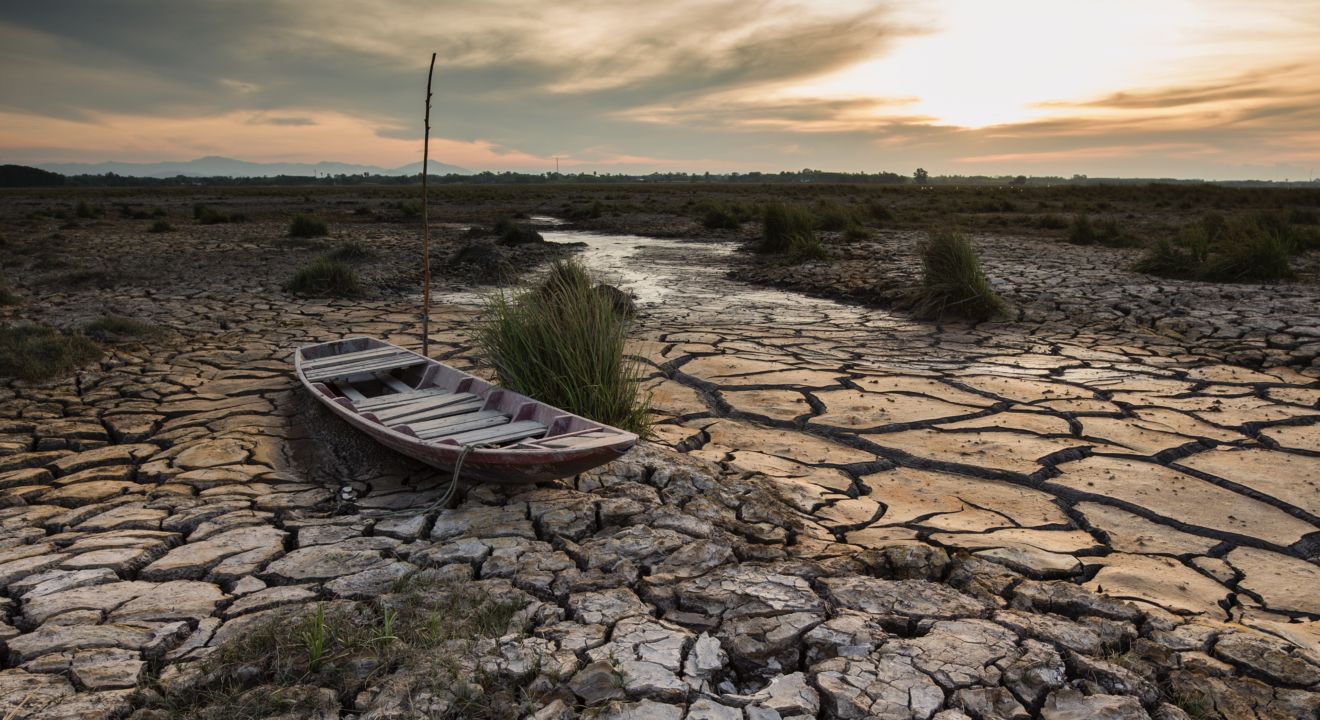Sustainability December 7, 2016


Whether you’re a self-proclaimed tree hugger or you slept through your environmental science class in high school, you’ve probably heard people mentioning “climate change” in the last few weeks. Why? Of course, everyone wants to make sure polar bears don’t lose their ice cap homes but people are even more concerned about what President-elect Donald Trump is going to do with his new political power.
Trump concerned environmentalists when he admitted “I’m not a believer in man-made global warming. It could be warming, and it’s going to start to cool at some point … It’ll get cooler, it’ll get warmer. It’s called weather.”
So what will climate change look like in the age of Donald Trump? ENTITY is here to break down all the facts, stats and (scary) stories related to climate change and America’s new 45th President.
Before we can even start diving into the mind of America’s new President, we need to dive into the research on climate change itself. To put it simply, climate change is a shift in the Earth’s average temperatures, weather patterns and global environments – and the signs of it are everywhere. According to the U.S. Environment Protection Agency:
For many, evidence for climate change seems nearly as overwhelming as the indicators themselves. NASA reported a scientific consensus that the Earth’s climate is warming and even the U.S. Department of Defense released a 2015 report on the national security implications of climate change.
READ MORE: The Urgency of Change for Global Warming
However, others see climate change in a less certain light – including America’s 45th President, who has repeatedly called climate change “a hoax.” He isn’t alone either. Other famous “climate change deniers” include S. Fred Singer, a former Cold War physicist and founder of the Science and Environmental Policy Project, Republican congressman Joe Barton, former Alaska governor Sarah Palin and oil moguls David and Charles Koch.
Now it’s time to explore Trump’s plans for this hot topic now that he’s won the Presidency. One only has to look at the “Energy Independence” section of Trump’s transition website to understand why environmentalists might be feeling anxious.
Part of the section reads: “Rather than continuing the current path to undermine and block America’s fossil fuel producers, the Trump Administration will encourage the production of these resources by opening onshore and offshore leasing on federal lands and waters … We will end the war on coal, and rescind the coal mining lease moratorium, the excessive Interior Department stream rule, and conduct a top-down review of all anti-coal regulations issued by the Obama Administration.”
Trump has also reportedly suggested that he will cut back on Barack Obama’s Climate Action Plan as well as related policies like the country’s inclusion in the Paris Agreement, an international attempt to slow global warming. He may also kick Obama’s Clean Power Plan – which intended to reduce U.S. power plants’ carbon footprints by one-third of their 2005 levels by 2030 – to the curb.
As political news junkies probably already know, the biggest shockwave to hit environmental policies so far is Trump’s appointment of Myron Ebell to oversee the Environmental Protection Agency’s transition. According to Trump’s transition site, the Trump administration will “refocus the EPA on its core mission of ensuring clean air, and clean, safe drinking water for all Americans.” However, Ebell’s resume suggests that stormy skies may be on the horizon for environmentalists.
READ MORE: Donald Trump’s New EPA Leader Thinks Global Warming “Is Nothing To Worry About”
Ebell has not only argued for increasing the land used for logging, oil and gas exploration and coal mining, but has also repeatedly rejected the existence of climate change, according to the Washington Post. Other points to consider? He has worked for several years at Competitive Enterprise Institute, a conservative policy group. He also opposes “energy rationing.” Instead, he proposes that the U.S. boost its economy by taking advantage of all of its natural resources.
Trump’s site claims, “America’s environmental agenda will be guided by true specialists in conservation, not those with radical political agendas.” The specific qualifications that constitute a “true specialist,” however, have not yet been revealed.
If Trump delivers on the promises he made regarding environmental policy, many believe that “green” will no longer be the new black – unless black means dead. In fact, dismantling Obama’s American climate change regulations and rejecting the Paris Agreement could “ensure [that] we head into the danger zone,” says Michael Oppenheimer, a professor of geosciences and international affairs at Princeton University.
In fact, research shows that Trump’s proposed policies would raise U.S. carbon emissions by 16 percent compared to the policies proposed by Hillary Clinton. And while Donald Trump could not “cancel” the Paris Agreement – which is projected to receive the 55 percent of signatory nations needed for ratification by the end of 2016 – the absence of the United States could incite more nations to follow Trump’s lead.
READ MORE: Paris Agreement Turns the Tide for Climate Change
However, that’s not to say that there’s no hope for environmentalists. “President-elect Trump said he wanted to be a president for all Americans,” writes former vice president and longtime environmental activist Al Gore. “In that spirit, I hope that he will work with the overwhelming majority of us who believe that the climate crisis is the greatest threat we face as a nation.”
The People chose to elect Trump – and now, Trump will have his own choice to make. Will he stick to his promises to adopt a different stance on environmental policy? Or will he listen to the 64 percent of U.S. adults who are worried a great deal or a fair amount about global warming?
Only time – and America’s newest president – will tell.